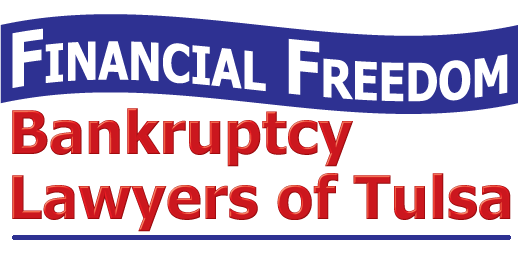Oklahoma Bankruptcy HelpAre Any Debts Ineligible for Bankruptcy?
 While many types of debt are dischargeable in a Tulsa bankruptcy, there are some types of debt that are ineligible for bankruptcy.
While many types of debt are dischargeable in a Tulsa bankruptcy, there are some types of debt that are ineligible for bankruptcy.
Ineligible debt often comes as a surprise for many who are considering filing for bankruptcy protection. However, it is always better to gain a good understanding of protections and limitations of bankruptcy.
There are two major areas of debt that is often ineligible for bankruptcy in Oklahoma: student loans and taxes.
Student Loans: Not Always Ineligible for Bankruptcy
In 2005, Congress passed the Bankruptcy Abuse Prevention and Consumer Protection Act (BAPCPA). This made it more difficult to discharge both federal and private student loans in bankruptcy. In essence, you must prove undue hardship in order for these loans to be discharged.
The test for undue hardship has three criteria that must be met based on a federal court decision. You must prove that:
- you are unable to meet even a minimal standard of living based on your current income and expenses, including the loan repayments;
- your finances are unlikely to change during the life of the loan repayment; and
- you have made good faith efforts to repay the loan.
These prongs are often met when a severe and permanent disability or illness that creates a significant financial hardship on a debtor makes repayment impossible at any level. The disability must truly be severe and permanent.
In some measure, your ability to discharge a student loan will depend not only on meeting the above qualifications but also on whether you hold federal or private student loans.
Under current law, federal student loans are eligible for Income-Driven Repayment (IDR) plans. These plans based your monthly payment amount on income.
In some cases, your monthly payment on a federal loan in an IBR program may be $0 per month.
While IDRs may repayment more affordable in the short term, they make it more difficult to justify discharging student loans in bankruptcy.
However, most private loans do not offer IDR plans. As a result, such loans may be easier to discharge.
Some private loans are not bound by the hardship test. Your private student loan may be dischargeable if:
the school you attended was not federally accredited school; or
you were ineligible as a student to receive the loan, but it was awarded to you anyway.
Taxes and Other Government Obligations
Not all taxes are eligible for discharge under bankruptcy laws either.
In order to have your tax debt discharged in a Chapter 7 liquidation, all of the following criteria must be met.
The tax debt must have been incurred at least three years before filing a request for personal bankruptcy. The three-year window of time begins with the date the tax returns were filed with a state government or the Internal Revenue Service (IRS). This is true even if the filing is on an older year’s taxes.
So if you wait until 2019 to file your taxes for 2014 and it turns out that you owe taxes for 2014, you may not request bankruptcy relief for those taxes until at least 2022.
You must have filed all of your returns in order to seek tax debt relief.
The taxes owed must be income taxes. Taxes such as employment taxes, payroll taxes, and the like do not qualify for tax debt relief in bankruptcy.
You must not have taken any action in your returns to evade taxes lawfully owed. If you lied or omitted income in your return in order to evade taxes, your tax debt will not qualify.
You must have filed the return that the tax debt is based on at least two years before filing bankruptcy.
Also, your tax debt must have been assessed at least 240 days before you file for bankruptcy. This is called the 240 Day Rule. This time limit may be extended in certain circumstances.
Free Bankruptcy Planning: Tulsa Bankruptcy Lawyer
To get the best possible outcome in your bankruptcy case, you will need to set expectations for yourself and also understand your attorney’s expectations of you.
If you’re ready to file, contact a Tulsa bankruptcy attorney at the Freedom Financial Bankruptcy Lawyers of Tulsa as soon as possible.
To receive your free initial bankruptcy analysis, call us today at 918-786-9600.




